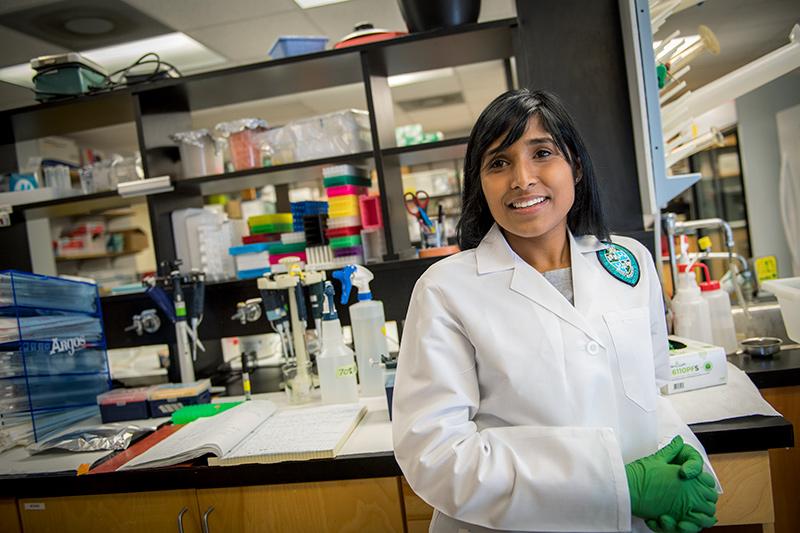Journey begins for new Fulbright scholars at Tulane
Chivonne Moodley was working as the animal facility laboratory supervisor at the Africa Health Research Institute in the coastal city of Durban, South Africa, when she got invited to an event that would change the course of her career.
A speaker from the U.S. Consulate had arrived at the institute to present a workshop for those interested in applying for a Fulbright scholarship, which would fund graduate students to pursue doctoral degrees at universities in the United States.
A colleague coordinating the workshop asked Moodley if she could attend to help fill the audience.
“I went, and that was the moment that changed everything,” said Moodley. “I have wanted to pursue my PhD since completing my undergraduate studies, but life happens, and sometimes you have to take the long road to your goals. Being able to do it in the United States is beyond what I could have expected.”
The workshop convinced Moodley to start the rigorous application process, which required multiple interviews and taking the Graduate Record Exam.
“It was quite a challenging time, studying and preparing for exams and interviews while managing the institute’s animal unit, but it all paid off in the end,” she said.
As a Fulbright scholar, Moodley is now beginning her five-year adventure as a biomedical sciences doctoral student at Tulane University. She arrived with fellow Fulbright recipient Dr. Rida Iftikhar from Pakistan.
“Dr. Iftikhar is interested in pursuing her studies in the field of cancer research. We’re good friends now, and I know we’re going to be helping each other through this journey,” she said.
Moodley is pursuing her doctorate in tuberculosis immunology.
“Being from South Africa, you see the impact of TB and HIV; you see how it affects people’s lives and the society as a whole,” she said. “I wanted to find a program that had a strong TB research focus, and quality mentorship was also was very important to me.”
Moodley said that she found both an innovative TB research program and supportive mentors at Tulane.
“What I enjoy about being at Tulane is the ability to work in a multidisciplinary approach with access to the non-human primate model. I think that’s a huge step in the right direction to finding some of the answers to the questions that surround TB and HIV infection,” she said.
Like this article? Keep reading: Researchers work to understand why HIV patients are more likely to contract tuberculosis

